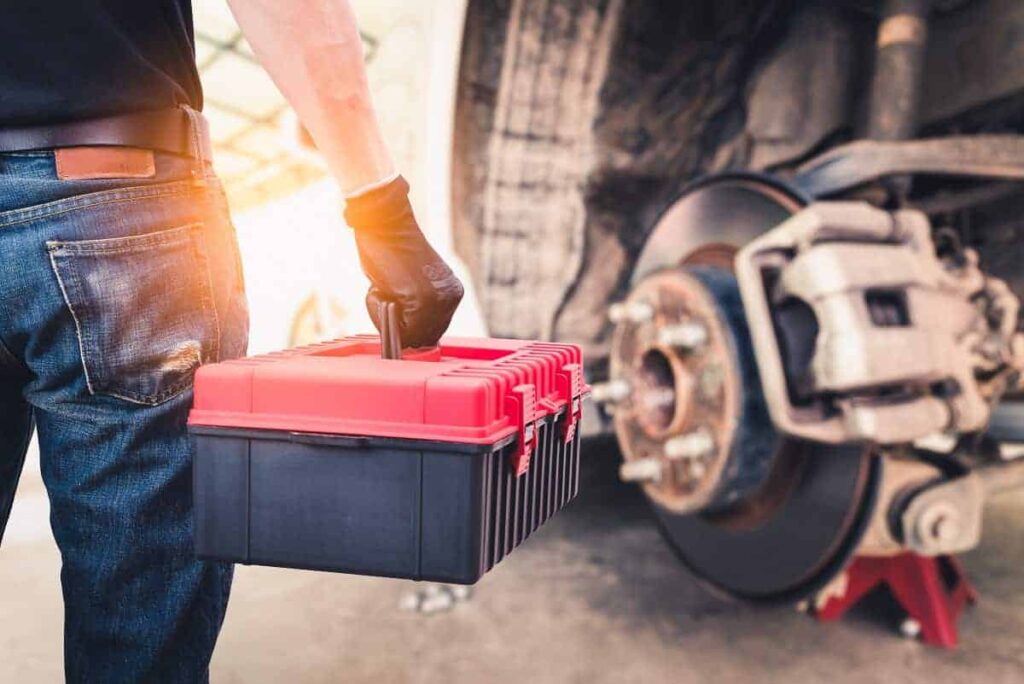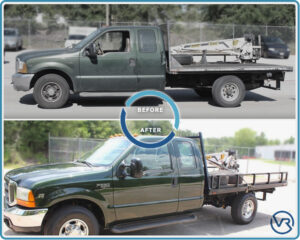What are the best steps for long-lasting performance in box truck repair? Proper maintenance and timely repairs are crucial in keeping these vehicles on the road, reducing downtime, and avoiding costly replacements.
Here, we’ll cover essential repair practices that will help your box truck perform optimally for years.
Box Truck Repair and Its Importance
Box trucks endure tough conditions daily, from city streets to long highways, often carrying heavy loads. Over time, wear and tear become evident, and without regular Box Truck Repair, small issues can escalate into larger, costly problems.
Prioritizing repair and maintenance can extend a truck’s lifespan, minimize breakdowns, and reduce operational costs—key factors for businesses relying on a dependable fleet.
Inspect and Maintain the Engine Regularly
The engine is the powerhouse of any box truck, and consistent maintenance is essential to keep it running efficiently. Engine components like the air filter, spark plugs, and fuel injectors should be checked periodically and replaced as necessary.
Regular oil changes also ensure that the engine remains lubricated, reducing friction and preventing overheating. When your Box Truck Repair plan includes engine inspections, you’re safeguarding the core of your vehicle.
Prioritize Brake System Repairs
The brake system is critical for safety in a large vehicle like a box truck. Routine brake inspections should focus on identifying worn brake pads, leaky brake lines, and corroded rotors. Addressing these issues promptly will improve braking efficiency, especially under heavy loads. Make sure Box Truck Repair includes quality brake replacements, ensuring consistent performance in all road conditions.
Address Transmission and Drivetrain Issues
Transmission and drivetrain components experience significant stress in box trucks, especially during long hauls or heavy-duty usage. A well-maintained transmission can significantly improve the truck’s durability.
Regular fluid checks and timely transmission repairs prevent issues like slipping gears or overheating. Include transmission checks in your box truck repair routine for better power transfer and smooth driving.
Suspension System Checks for Comfort and Stability
A box truck’s suspension system plays a huge role in managing loads and maintaining stability on the road. Suspension parts, including springs, shocks, and bushings, wear out over time.
Damaged suspension can lead to poor handling and increased strain on other components. To ensure durability, include suspension checks in your Box Truck Repair routine, prioritizing replacements when parts show signs of wear.
Tire Inspections and Rotations for Balanced Wear
Tires take the brunt of road contact and wear out faster in heavy-duty vehicles like box trucks. Regular tire inspections and rotations are essential to maintaining balanced wear across all tires.
Uneven tire wear can reduce fuel efficiency and pose safety risks, particularly when hauling heavy loads. Adding tire maintenance to your Box Truck Repair strategy helps extend the life of each tire and maintains stability on the road.
Body and Frame Inspections to Prevent Rust and Corrosion
Rust and corrosion can weaken a box truck’s structural integrity, leading to safety concerns and expensive repairs. Regular inspections of the body and frame can catch rust early before it spreads. Applying rustproof coatings or repainting affected areas are cost-effective Box Truck Repair steps that prevent rust damage and enhance the truck’s durability.
Electrical System Upkeep for Reliable Performance
The electrical system in box trucks powers essential features like lights, brakes, and internal electronics. Issues in the wiring, battery, or alternator can lead to malfunctions or breakdowns, especially on longer trips. Regular electrical checks in Box Truck Repair ensure that all components, from headlights to dashboard lights, function correctly, promoting safety and reliability.
FAQs
How often should a box truck’s engine oil be changed?
It depends on the truck’s usage, but it is typically recommended that oil changes be performed every 5,000-7,000 miles. Regular oil changes keep the engine well-lubricated and prevent overheating, essential for box trucks carrying heavy loads.
What is the best way to prevent rust on my box truck?
Regular inspections and applying a rustproof coating can prevent rust formation. Rust tends to start in small areas, and early treatment can save costs and maintain the truck’s structural integrity.
How do I know if my box truck’s transmission needs repair?
Signs like slipping gears, delayed acceleration, or unusual noises can indicate transmission issues. Addressing these signs early through Box Truck Repair prevents costly repairs and maintains smooth driving.
How often should tires be rotated on a box truck?
Tire rotations are generally recommended every 5,000-8,000 miles for even wear. Regular rotations help maintain fuel efficiency and improve road safety, especially on trucks that cover long distances.
Conclusion
Incorporating regular Box Truck Repair practices, like engine maintenance, brake inspections, suspension checks, and rust prevention, can greatly extend the life and performance of a box truck.
For businesses dependent on fleet vehicles, these practices are cost-saving and essential for uninterrupted operations. Vehicle Reman’s re-manufacturing services offer comprehensive solutions to keep your fleet in top shape, so you can focus on what matters most—your business.



